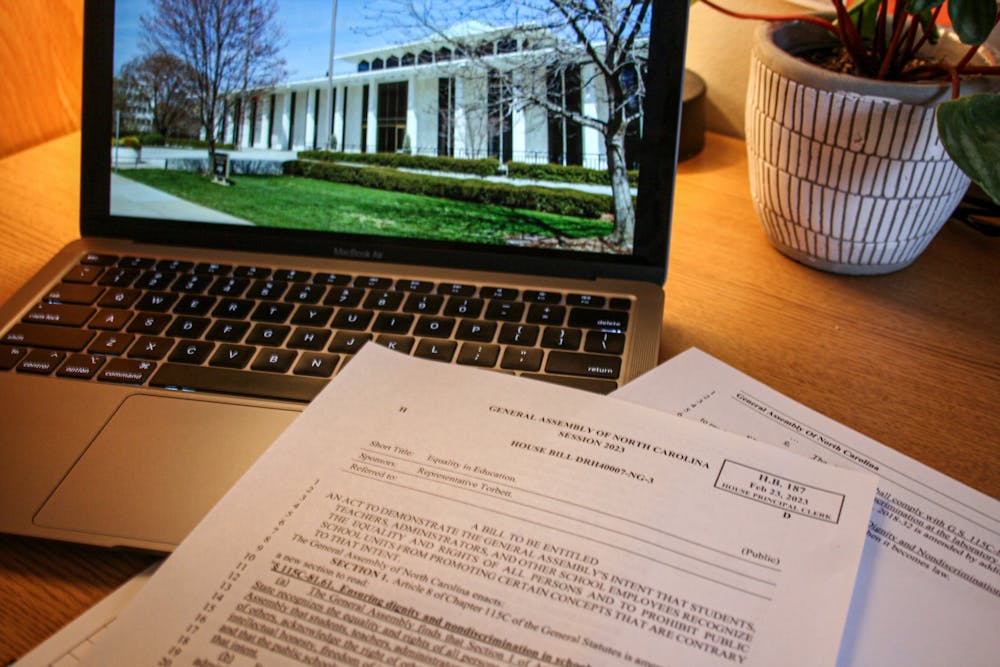House Bill 187, meant to prohibit teachers from promoting or teaching about race and sex in certain contexts in North Carolina public schools, was filed by North Carolina House Republicans on Feb. 23.
Its introduction follows similar efforts by Republicans to combat the teaching of subjects such as critical race theory in other states like Florida and Tennessee. The bill itself is a revival of a similar one that was proposed in 2021, which was vetoed by Democratic Gov. Roy Cooper.
"The legislature should be focused on supporting teachers, helping students recover lost learning, and investing in our public schools," Cooper said in the 2021 veto. "Instead, this bill pushes calculated, conspiracy-laden politics into public education."
The bill's primary sponsors are N.C. Reps. John Torbett (R-Gaston), Hugh Blackwell (R-Burke), David Willis (R-Union) and Diane Wheatley (R-Cumberland).
None of the 16 Republican sponsors and co-sponsors of the bill were available to comment by the time of publication.
Some teachers and students don't agree with the provisions laid out in the bill.
If she taught high schoolers, Katherine Turk, a women's and gender studies associate professor at UNC, said it would be impossible for her to accurately teach students about historical events in U.S. history while following the bill’s guidelines.
She also said she disagrees with the language used by representatives who say teaching students about inequities between groups in the United States will "indoctrinate" them into certain beliefs.
“Education is not about indoctrination,” she said. “It's not about memorizing names and dates and facts. It's about thinking about the past and all of this complexity, engaging lots of different perspectives and engaging evidence and analyzing it.”



